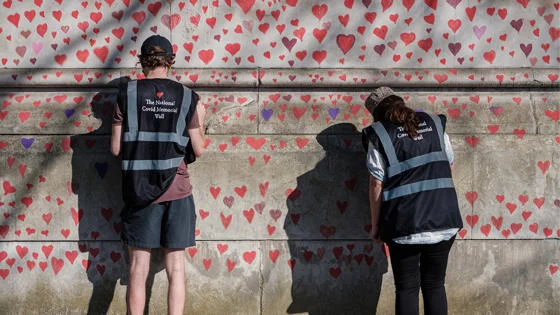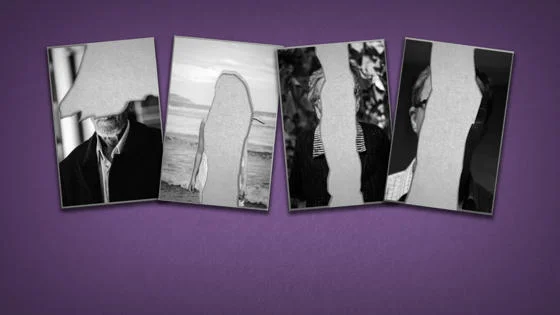Finding solace from grief in work

Contents
The idea of taking refuge in work as a way to cope with a difficult life event or trauma is nothing new. However, research by Dr Lidiia Pletneva, Assistant Professor in the Department of Management at LSE, suggests many people not only turn to work as a retreat from grief, but actively shape their jobs into a way of coping with difficult emotions.
Dr Pletneva conducted 68 in-depth interviews with employees who had experienced grief-triggering events such as a death of a close loved one or a breakup of a committed relationship. The powerful effects of these events on the interviewees’ lives had caused mental anguish and sorrow.
On losing his father, one participant, Frederick, an anesthesiologist, said: "Still, every once in a while, it comes to mind, and there’s still something that, you know, is kind of tough to think about."
Others, such as programme officer Emily, who experienced a breakup, reported feeling emotionally exposed. "It made me a little bit more vulnerable," she said.
Work as a mental break
These difficult events created the need for a mental break that would allow the interviewees to take time off from constantly thinking about the past or the future.
Many reported finding this through work, describing how they had modified their jobs to help them manage emotionally.
"I started noticing that people generally saw their work as playing a positive role when they were experiencing grief," explains Dr Pletneva.
"Although they felt sadder or less cheerful at work, many also took specific actions to cope, such as working longer hours, focusing more on their tasks or socialising with colleagues."
For example, some took the opportunity to stretch their roles by embracing a wider range of responsibilities, volunteering for tasks that usually fall outside their standard duties or picking up new skills relevant to their work.
Karoline, a project manager who experienced a breakup, said she had almost withdrawn from her home life so she could immerse herself in work and not think about anything else.
"I was asking [my supervisor] to give me more projects in order to work on them from morning till night, get tired, fall asleep and remember nothing, wake up in the morning – and all thoughts are about work again" she said. "Probably this saved me."

A new approach to work and different priorities
Interviewees also shared how they reshaped their approach to work, putting in more effort, rethinking priorities and coming up with innovative ways to tackle tasks.
Silas, a software engineer who had lost his friend, prioritised coding among the various jobs he had to complete because it was the easiest way to stay focused on work and ‘‘get in the zone’’.
People also reported being more engaged with colleagues, whether through increased workplace interactions or by participating in social events. Some used this extra time to reflect on, discuss and process the recent events in their lives.
That was the case for Waylen, a senior laboratory technician who had experienced a breakup. "I needed someone to talk to, so there was a little bit more interaction [at work]," he explained.
Others expanded their interactions with co-workers beyond the workplace. For example, John, a fire lieutenant who went through a breakup, went to more events with co-workers both in and outside of work.
"I was more available to do things with other people, to go on trips and stuff with other co-workers ... So I probably did that a little bit more than I would have done normally," John explained.

Work as a place of friendship and support
Added to this, some interviewees relayed that they had begun opening up and sharing more personal information than they ordinarily would have, deepening the quality of their interactions with their colleagues.
Overall, participants said that they had talked about the traumatic event they had been through at work. For many it was the first time that they had opened up and provided such personal information.
Nick, a software engineer who had experienced a breakup, noted: "... I’ve been, like, ‘Oh yeah, I like to play the drums’ or ‘I like this kind of music’ but, like in terms of really, really impactful information, it’s probably the first time that I’d share anything like that with them."
For fire lieutenant John, sharing information about his breakup went against his personality. He said: "I’m generally a pretty private person, so I think I opened up more to them and was just kind of honest about where I was at, what I had gone through, and where I was hoping to go ..."
Dr Pletneva found that the data from her research suggested that people tended to engage in this kind of ‘‘job crafting’’ from between two weeks to six months and longer in some rarer cases.
The interviewees generally saw the consequences of modifying their jobs as positive. For example, working longer hours and doing more work eventually resulted in professional recognition.
It also led to their increased commitment to the organisations they worked for. Through spending more time with co-workers and deepening the quality of interactions at work, they became more loyal to the organisation, because of the people who worked there.
Sophia, a facilities director who had experienced a breakup, had not been enjoying her work and was considering retirement. But after her experience of working through her grief, she began to enjoy her work a lot more, "because it’s no longer about what I do, but who I do it with ... and I don’t have any plans to retire anytime soon."
Work can help avoid the pitfalls of drug abuse or worsening depression
People also believed that working longer hours and staying focused on work allowed them to avoid worsening depression and substance abuse.
However, throwing themselves into work in this way led to health issues for others. Not eating properly, not getting enough sleep and being less physically active took its toll.
In some cases, people who spent too much time reshaping their job roles – whether by taking on more tasks or pushing themselves too hard – ended up postponing their grief. Instead of addressing their emotions in the moment, they buried them under a pile of work. As a result, many found themselves having to confront their grief much later, sometimes months down the line, when the emotional weight could no longer be ignored.
"Grief from personal loss can linger for years, and while recovery isn't something that can be fast-forwarded, people often turn to their work as a coping mechanism," says Dr Pletneva.
"By actively reshaping their job routines, they not only navigate their grief but also reshape their broader life experiences.
"However, people should be careful in how exactly they transform their work into a refuge to prevent negative consequences."
Dr Lidiia Pletneva was speaking to Sue Windebank, Senior Media Relations Manager at LSE.
Download this article as a print-optimised PDF [273KB].



